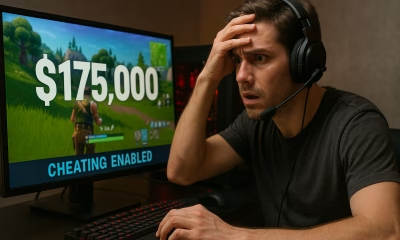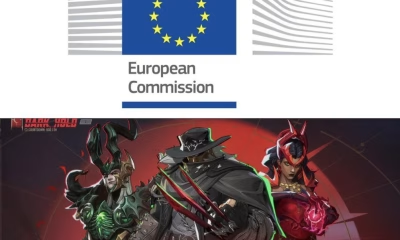General
Announcement: Community Tournament Licenses and Competition Guidelines – The Legal Landscape for Amateur Esports Events
In the rapidly evolving world of esports, understanding the legal framework surrounding Community Tournament Licenses and competition guidelines is crucial for organizers. This comprehensive guide delves into the intricacies of organizing an esports event, emphasizing the importance of adhering to the specific terms and conditions laid out by game publishers. Whether you’re planning a small local competition or a large-scale international event, this guide provides essential insights into the legal requirements and restrictions that govern the use of video games in tournaments.

Announcement from Esports Legal News (ELN)
Esports Legal News is excited to announce that we are currently working on a comprehensive community tournament knowledge-database for all esports titles. This initiative aims to provide event organizers with a centralized resource for legal requirements, guidelines, and best practices across various games. Stay tuned for more updates as we develop this valuable tool for the esports community.
In navigating the legal landscape of esports tournaments, awareness and compliance with publisher guidelines are key. By understanding the requirements and restrictions outlined in tournament licenses and community guidelines, organizers can ensure their events are successful, compliant, and enjoyable for all participants.
If you like to contribute, please reach out via our contacts form.
Table of Contents
Understanding Community Tournament Licenses and Guidelines
Community Tournament Licenses are agreements provided by game publishers that outline how third-party organizations can use their game for events. These licenses are critical for protecting the intellectual property of the publisher, covering everything from the use of the game’s name and logo to the depiction of characters and gameplay footage. Publishers issue these licenses to ensure their game is used in a manner that aligns with their brand and legal interests.
For grassroots and local event organizers, some publishers offer specific community or tournament guidelines. These guidelines allow for the autonomous planning of events without the need for a formal licensing request, often referred to as ‘community licenses’. They typically do not require direct notification to the publisher, streamlining the process for small-scale event organizers.
Key Components of Tournament Licenses
Tournament license agreements commonly address several critical areas:
- Event Naming and Branding: Ensuring the event does not suggest endorsement or direct association with the game publisher.
- Registration or Entry Fees: Guidelines on participant fees, if any.
- Event Duration and Size: Restrictions on the length and scale of the event.
- Sponsors, Partners, and Restricted Products/Services: Prohibitions on certain types of sponsorships that may conflict with the publisher’s brand.
- Prize Pools Limits: Caps on the total prize money offered.
- Live Stream Broadcast and Video Marketing: Regulations on the use of game content in promotional materials.
Navigating Common Guidelines and Restrictions
When planning an esports event, it’s vital to familiarize yourself with the specific guidelines and restrictions set forth by game publishers. These can vary significantly and may influence key aspects of your event, from its name and branding to its sponsorship deals and broadcast rights. Understanding these guidelines early in the planning process can help avoid potential legal pitfalls and ensure a smooth, compliant event execution.
Determining the Need for a Tournament License
To ascertain whether your event requires a tournament license, start by reviewing any existing community guidelines provided by the game publisher. If your event falls within these guidelines, you may not need a custom license. However, if you’re planning a larger or more complex event that doesn’t fit within the existing framework, reaching out to the publisher for a custom tournament license is necessary.
Finding Tournament License Agreements
Information on tournament licenses and competition guidelines is typically available on the game publisher’s website. This information can often be found in sections related to end-user license agreements, public relations, events requests, or through direct contact with the publisher.












